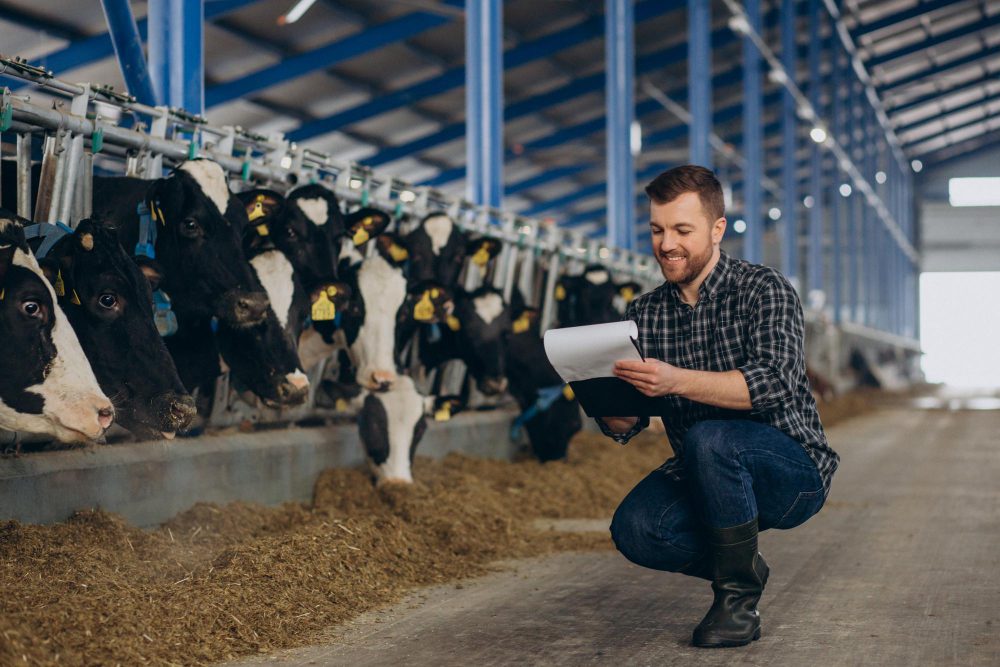Is Winter the Secret to Perfect Fencing? Find Out Now!

As the chilly breeze ushers in the frosty embrace of winter, many homeowners may think it’s time to hibernate indoors. However, contrary to popular belief, winter might just be the opportune season for tackling outdoor projects, particularly fence installation. While the idea of outdoor work in cold weather may seem daunting, there are several advantages to winter fencing installation that could make it the optimal time for this endeavor. Let’s delve into why opting for a winter fence installation with livestock fence panels might be the smartest move you can make this season.
Advantages of Winter Fencing Installation
Off-Season Perks
During winter, many contractors experience a lull in demand for outdoor projects. This means you’re more likely to secure their services at a favorable rate and with greater flexibility in scheduling. With less competition for their attention, you can expect a more personalized approach to your livestock fence panel installation.
Optimal Ground Conditions
The frozen ground might seem like an obstacle, but it can actually work in your favor. Frozen soil is typically more stable, making it easier to set posts securely. This ensures a sturdy foundation for your livestock fence panels, which is crucial for withstanding the elements and the wear and tear of livestock activity.
Minimal Landscape Impact
With vegetation dormant and landscaping activities at a minimum, winter is the ideal time to minimize disruption to your property. Installing livestock fence panels during this season means less damage to existing plants and landscaping features, allowing your property to spring back to life come warmer weather.
Contractor Availability
In the hustle and bustle of spring and summer, contractors are in high demand and often booked weeks or even months in advance. By opting for winter installation, you have a better chance of securing the services of your preferred contractor without having to wait in line. Plus, you’ll have their full attention and expertise dedicated to your project.
The Ideal Fences for Winter Installation
Vinyl Fences- Durable and Low-Maintenance
Vinyl fences are a popular choice for winter installation due to their durability and low-maintenance nature. Unlike wood, vinyl won’t warp, crack, or rot in cold and wet conditions, making it ideal for withstanding winter weather. Additionally, vinyl livestock fence panels are easy to clean, requiring minimal upkeep during the winter months.
Steel Fences- Strength and Security
For those prioritizing strength and security, steel fences are an excellent option for winter installation. Steel livestock fence panels offer unmatched durability and resilience, capable of standing up to harsh weather conditions and the heavy impact of livestock activity. With proper coating and maintenance, steel fences can withstand years of exposure to the elements without corroding or rusting.
Aluminum Fences- Lightweight and Versatile
Aluminum fences combine strength with lightweight construction, making them a versatile choice for winter installation. These livestock fence panels are resistant to rust and corrosion, ensuring longevity even in snowy and wet conditions. Additionally, aluminum fences are available in a variety of styles and finishes, allowing you to customize the look of your property while providing reliable containment for your livestock.
Which One Reigns Supreme?
While both vinyl and aluminum fences have their advantages, steel emerges as the top contender for winter fence installation. Its unmatched strength and durability make it the go-to choice for withstanding the rigors of winter weather and providing long-term security for your livestock. Whether you’re dealing with heavy snowfall, icy conditions, or the occasional rogue animal, steel livestock fence panels offer peace of mind and reliable protection year-round.
Complete Installation Process
Planning Your Fence Installation
The first step in the fencing installation process is a consultation with a reputable contractor to discuss your needs and preferences. During this phase, the contractor will assess your property, take measurements, and provide recommendations for suitable fencing options. Once the design is finalized, the planning phase begins, where details such as materials, layout, and timeline are established.
Choosing the Right Materials
Choosing the right material for your fence is crucial for its longevity and performance. Whether you opt for vinyl, steel, or aluminum, selecting a high-quality material that is suited to your climate and aesthetic preferences is essential. Consider factors such as durability, maintenance requirements, and cost when making your decision.
Preparing the Site
Before installation can begin, the site must be properly prepared to ensure a smooth and successful process. This may involve clearing vegetation, leveling the ground, and marking out the perimeter of the fence. Proper site preparation is essential for achieving optimal results and minimizing potential issues during installation.
Installing the Posts
Once the site is prepared, the next step is to install the fence posts. These serve as the foundation for the fence and must be securely anchored into the ground. Depending on the material and design of the fence, posts may be set in concrete footings or driven directly into the ground using specialized equipment.
Setting Up Livestock Fence Panels or Pickets
With the posts in place, the panels or pickets can be installed to form the body of the fence. Careful attention must be paid to ensure that each panel is level and properly aligned with the adjacent panels. This step requires precision and accuracy to achieve a seamless and visually appealing result.
Adding Finishing Touches
Once the main structure of the fence is in place, the finishing touches can be added to enhance its appearance and functionality. This may include installing gates, decorative elements, or additional features such as lattice panels or post caps. Attention to detail during this phase helps to elevate the overall aesthetic appeal of the fence.
Ensuring Quality
The final step in the installation process is a thorough quality check to ensure that the fence meets the highest standards of craftsmanship and durability. This may involve inspecting each component for proper installation, testing gates and hardware for smooth operation, and addressing any remaining issues or concerns. A comprehensive quality check ensures that your new fence will provide years of reliable performance and satisfaction.
Your Trusted Partner in Fencing
At Bison Pipe, we understand that winter presents a unique opportunity for fencing installation, offering numerous advantages that can streamline the process and ensure optimal results. By taking advantage of the off-season availability of contractors, leveraging the benefits of frozen ground, and selecting the right materials for your climate and aesthetic preferences, we believe you can enjoy the benefits of a beautiful and durable fence year-round. So why wait? Let’s explore why you should embrace the winter season as the perfect time to enhance your property with the addition of livestock fence panels that will stand the test of time.

